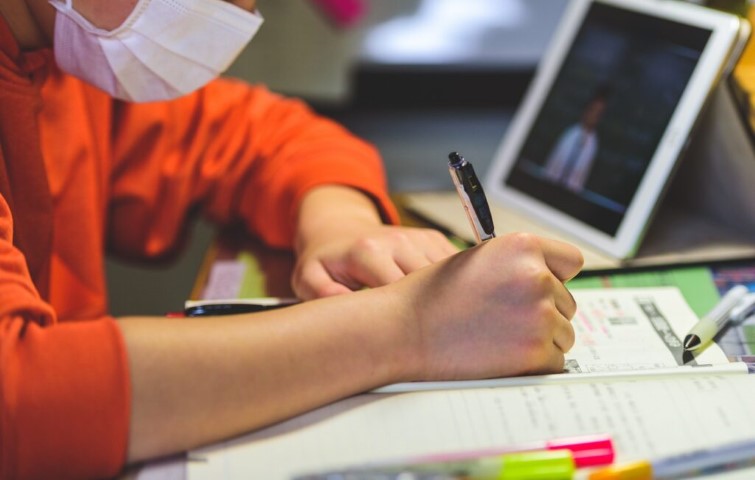The Covid-19 pandemic is a global crisis that has severely affected the entire world. This virus changed the way people lived, by forcing them to put a mask, practice social distancing and sanitizing your hands whenever you go home. School and education are no exceptions. The kids and teachers of all the schools in the world have been forced into an unknown world of online education, and it is not as easy as you think when you look at that particular phrase. All 10,012 government schools and 104 private schools in Sri Lanka have delved into a pool of hardships and blood, toil, and sweat. Here are some reasons as to why this is known to be true.
Sri Lanka is still a developing country, so there is a vast percentage of people living in poverty. It is a known fact that 95% of Sri Lankan schools are in rural areas. Therefore, a lot of students come from under-privileged backgrounds, and are now mostly affected by the hardships of virtual education. Many families living in poverty may not have access to computers, laptops or phones and tabs. This puts them in a state of financial hardship and does not allow their children to get any education, while rich families living a luxurious life do.
Many students may lose concentration while studying due to the now free environment around them because there may be distractions in the household. It is important for young school children to have the experience of going to school, meeting friends, and learning in a suitable environment. This will then affect their personalities. Learning while staying at home may lead to social shyness once back in physical school.
Assessments and exams cannot be trusted to be carried out online anymore, for many students have resorted to copying during tests since the teachers cannot monitor what they are doing at home. This leads to
unfair results, and puts the honest children in challenging situations while the cheaters cheat more without a care in the world.
Teachers are now stressed due to the fact that they cannot monitor any of the students at home. This may lead to poor teaching and uninterested teachers, which in the end results in students not getting a proper education.
The above fact causes children to rely on their own resources, which is hard enough. In the few international schools that the online schooling is being conducted in a orderly manner, some selfish children are known to have deleted the files uploaded online by teachers in platforms such as Microsoft Teams. Therefore, children will have to be self-dependent regarding notes and other things under the topic of school.
In Sri Lanka, the computer literacy rate is 30.1%, which is extremely low, considering the prevailing situation. This statistic leads to the poor intellectual development of children online who are not computer literate, even though they may have been getting on well at school physically. Moreover, only 22.2% of SL’s population have laptops, adding more stress to the ordeal.
Another crisis in this situation is that the amount of school dropouts have alarmingly increased. Many students leave school thinking that it is no longer needed to get a moderate job. This results in our generation becoming increasingly intellectually insufficient each day.
As one goes further away from the main road, you will find that the internet connection is exceptionally low. This is one problem that is surely not needed during a time when the whole young generation of Sri Lanka and other countries are now entirely dependent on virtual learning.
Even though the students and teachers may be suffering more, there is also one other group of people who suffer: parents.
All parents (not only in Sri Lanka, but in the entire world) were never prepared to face such an ordeal, because they did not have the slightest idea that something like Covid-19 would reach here. This resulted in their poor planning of their immediate action.
Most of the parents in Sri Lanka are workers who take wages. This is now a humungous problem since the children are now at home 24/7. This results in most parents leaving their children unattended to at home all alone. This makes the parents uneasy, thinking about what their child/children may be getting up to at home. Children may then be victims of peer pressure, viewings of age-inappropriate things and other risky behaviors. Also, some parents may choose to stay at home out of love for their children, but this has consequences. Wage loss. When the parents stay at home while being absent at work, it will obviously result in them not being paid their salaries. This will put them in a state of financial hardship and will therefore not be able to provide for their children and their overall family.
This financial problem causes even more chaos, because it is known to everybody that online=Wi-Fi and data usage, and data usage and Wi fi=money. This will, once again, result in their children not being able to go to school online.
All these monstrous dilemmas tend to disrupt online learning. Normal school was easy enough, but as I said in the beginning of this essay, it is something that requires blood, toil and sweat, and is not as easy as it may seem. The government is currently taking small steps to rid these problems, but we will just have to wait and see.
By Yash Nanayakkara, 12 years old

